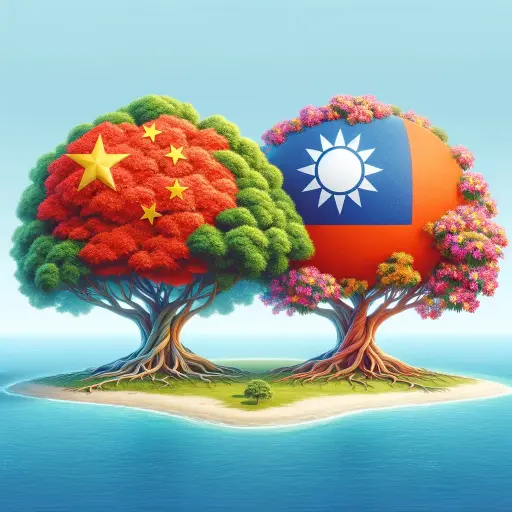Taiwan is likely facing imminent invasion by China as the superpower has repeatedly threatened to do so and considers the island nation part of sovereign China.
In recent years, China has sent military aircraft across the Taiwan Strait and towards the Island’s southwest on a near daily basis, repeatedly testing Taiwan’s ability to respond to an invasion along its west coast. But this year, China began doing something new. In April and May, Chinese aerial drones went further than ever before, circling the entire island and fighter jets were detected on the island’s east coast. Military experts say Taiwan has always relied on its mountainous terrain as a natural shield in the event of an attack , looking to the east as the safest place to refuel and re-arm its fighter jets if the west coast fell.
China’s growing range has led to competing ideas among the island’s current and former military leaders about how Taiwan should respond.
How serious are these threats to Taiwan’s east coast and how will Taiwan respond? Does the island need to change its defensive strategy?
An air force base on the island’s easy coast houses bunkers built deep underground to store fighter jets and anti-ship missiles that could launch in response to an attack on Taiwan’s west. By sheltering these weapons in the mountains, Taipei plans to be able to prevent China from gaining early control of the skies. Experts say this is crucial because the People’s Liberation Army of China dwarfs Taiwan’s military, limiting the Island’s ability to defend itself against a full-scale invasion from China on its own.
Instead, Taiwan’s main strategy for survival is to fight until assistance from allies, including the United States, arrives.
But some experts believe China’s recent incursions to the island’s east and its growing military prowess are making Taiwan’s current strategy outdated. The PLA now has the capacity to attack Taiwan from the east as well. A Chinese attack from both east and west would overwhelm Taiwan’s smaller military and would likely lead to defeat even before help from abroad arrived.
In November, according to Reuters, “Taiwan’s military drove away four attempts by Chinese forces to approach the island’s sensitive contiguous zone last month, Taiwan security officials said, in what they see as a ramped-up Chinese campaign to ‘intimidate’ voters before key elections.”
On January 13th 2024, voters will elect Taiwan’s next president, as well as its legislature.
Reuters also noted that Taiwan officials have “repeatedly warned that China is trying to sway voters toward candidates seeking closer ties with Beijing, whose government has framed the Jan. 13 presidential and parliamentary elections as a choice between ‘peace and war’ and urged Taiwanese to make the ‘right choice.’”
Over the past four years, the government of Taiwan has repeatedly expressed concerns regarding the consistent presence of Chinese military forces in close proximity to its borders. This pattern of behavior is perceived as part of the People’s Republic of China’s strategic efforts to reinforce its claims of sovereignty over Taiwan, despite the latter’s self-governance and democratic governance structure.
With the approach of Taiwan’s national elections, there has been a notable escalation in these military maneuvers by the People’s Republic of China. This observation has been corroborated by Taiwanese security officials and diplomats stationed in Taipei, who note the correlation between the intensification of China’s military activities and the peak period of Taiwan’s electoral campaigning.
In a specific instance during November, the Chinese air and naval forces executed four separate yet coordinated operations in the vicinity of Taiwan’s contiguous zone, which extends up to 24 nautical miles from its coast. These maneuvers were documented and reported by several Taiwanese security officials and were further detailed in an internal Taiwanese government document, which provided an overview of the incidents. This series of events highlights the ongoing complexity and tension characterizing the relationship between Taiwan and the People’s Republic of China, especially in the context of Taiwan’s internal political dynamics and China’s assertive regional policies.
Taiwan will need to reassess its strategy to fend off an overwhelming invasion by China when it is unlikely outside assistance will be available to help defend it during the immediate first few days.
